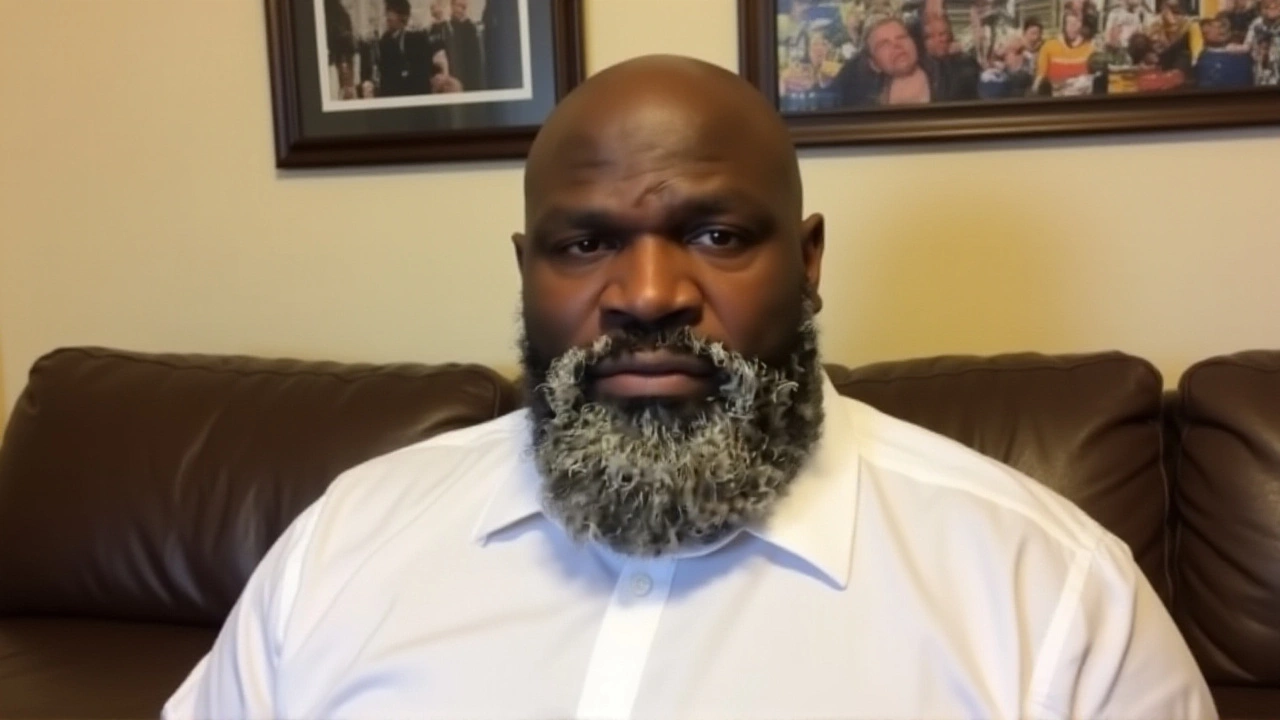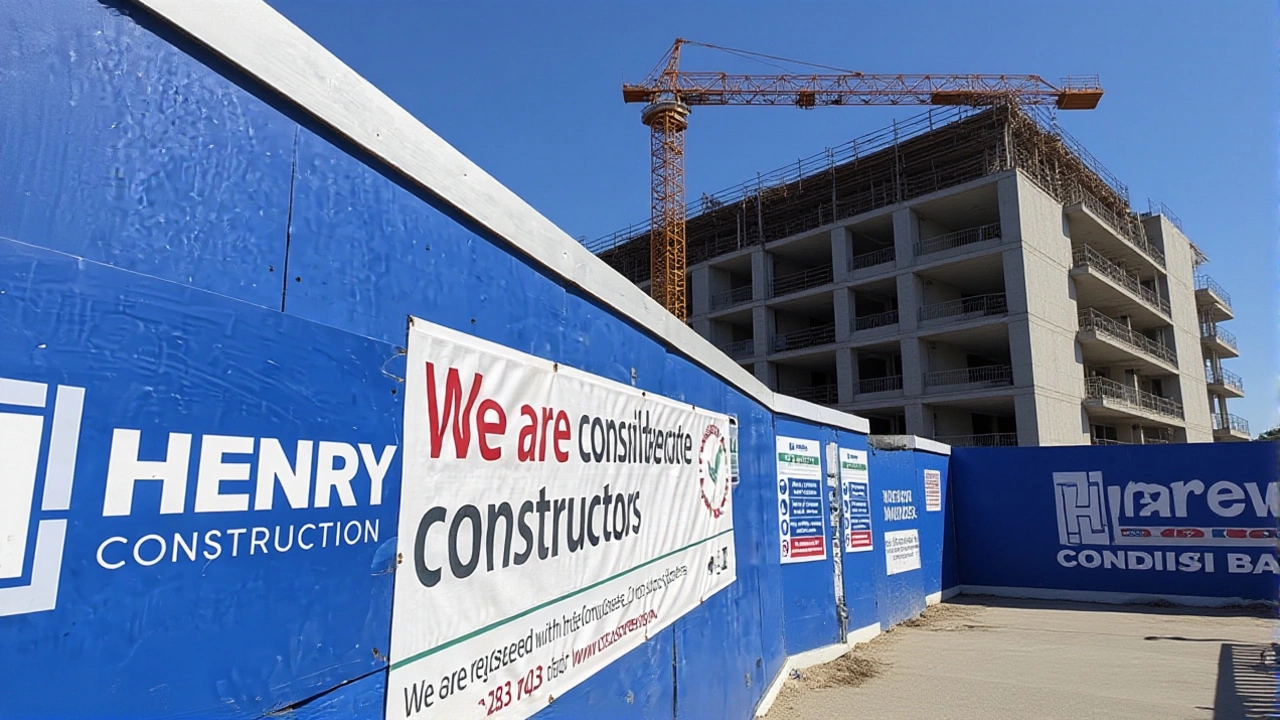When Mark Henry, a former director of Henry Construction Projects Limited, allegedly received a £10 million payout just weeks before the firm entered administration, the fallout rippled across the UK construction sector.
The payment, routed through the parent Henry Group Holdings Limited, was made on 19 January 2023 and later drilled down to a minority shareholder on 25 May 2023, a mere month before the company was placed in administration in June 2023. FRP Advisory, the appointed administrators, discovered the trail in June 2024 and have now taken steps to freeze the funds and pursue a claw‑back claim.
Background of Henry Construction Projects Limited
Founded in the early 2000s, Henry Construction Projects Limited grew into a heavyweight specialising in high‑rise towers across central London. By early 2023 the firm boasted an annual turnover of £400 million, 60 live construction sites, 54 direct employees and a further 41 subcontracted quantity surveyors. However, the aggressive expansion was funded largely by short‑term borrowing, and by late 2022 the balance sheet showed a widening cash‑flow gap.
Industry insiders say the company’s rapid rise masked a fragile financial structure. "When you have that many sites but a lean core staff, any delay on one project can cascade," noted Dr. Amelia Patel, a professor of insolvency law at the University of Manchester.
The £10 million Payment and Legal Claims
According to the six‑month progress report released in December 2024, the administrators traced a £10 million transfer from Henry Construction to its parent on 19 January 2023. Six months later, on 25 May 2023, the parent paid the same amount to a minority shareholder who also served as a former director of both entities.
The legal team behind FRP Advisory has named four defendants in the litigation: Mark Henry, his sister Mary Henry, director John Noone, and the corporate vehicle Henry Group Holdings Limited. The claims allege breach of fiduciary duty, violating the Insolvency Act, and “knowing receipt” of funds that should have been earmarked for creditors.
“If directors move money out of a company that is on the brink of insolvency, they are effectively stealing from the people left standing in line,” said Rachel Owens, senior partner at the insolvency boutique firm Morgan & Cross.
Beyond the £10 million, FRP Advisory is pursuing an additional £15.8 million in alleged mis‑appropriated assets, bringing total claims against the Henry family and associated directors to more than £31 million.
Impact on Employees, Suppliers and the Construction Industry
When the administration order hit in June 2023, all 54 staff members were made redundant and work halted on every active site. Subcontractors and material suppliers were left with unpaid invoices totalling roughly £43 million, a figure that ranks among the largest single‑company construction defaults in recent UK history.
Local boroughs reported immediate knock‑on effects: stalled high‑rise blocks, empty cranes, and a surge in temporary housing for displaced workers. “We lost contracts worth £7 million in a matter of days," lamented Tom Richardson, owner of a mid‑sized subcontracting firm that had been on the payroll of Henry Construction.
The ripple extends to the broader market as lenders tighten credit lines for developers perceived to be high‑risk, prompting a modest dip in new tower starts across the capital during the latter half of 2023.

Legal Proceedings and Potential Outcomes
Initially, FRP Advisory prepared to file an injunction to force repayment, but negotiations between the parties led to a temporary halt. The £10 million remains ring‑fenced, earmarked exclusively for creditor distribution pending the court’s final decision.
Judges will have to decide whether the payments to the Henry family constitute “transaction defrauding creditors” under section 238 of the Insolvency Act. If the court finds in favour of the administrators, the frozen funds could be released to the creditor pool, effectively reducing the £43 million shortfall by a quarter.
Conversely, a ruling that the transactions were legitimate could leave creditors to absorb the full loss, possibly triggering further liquidation actions against the already insolvent Henry Group Holdings Limited, which entered its own winding‑up process earlier this year.
What This Means for Corporate Governance
The case is shaping up as a litmus test for director conduct when insolvency looms. Experts warn that the outcome could tighten the “business as usual” approach to related‑party payments in the construction sector.
"We may see regulators push for stricter disclosures and earlier intervention by insolvency practitioners," predicts Dr. Patel. The saga also underscores the importance of robust corporate governance frameworks, especially for firms juggling massive project portfolios with thin profit margins.
For now, creditors await the next progress report, which FRP Advisory expects to publish by mid‑2025. Until then, the £10 million sits in a legal limbo, a stark reminder that money moved on the eve of collapse rarely stays hidden for long.
Frequently Asked Questions
How does the £10 million claw‑back affect suppliers owed money?
If the court orders the £10 million to be returned to the creditors, suppliers could see their collective deficit shrink from £43 million to around £33 million, improving the likelihood of partial repayment across the board.
What legal grounds are the administrators using to pursue the former directors?
FRP Advisory alleges breach of fiduciary duty, violation of the Insolvency Act’s provisions on transactions defrauding creditors, and the doctrine of knowing receipt – all aimed at proving the £10 million was improperly withdrawn.
Who are the main parties involved in the litigation?
The defendants are Mark Henry, Mary Henry, director John Noone and the corporate entity Henry Group Holdings Limited. The claimant is FRP Advisory, acting on behalf of the creditors.
What timeline should creditors expect for the final resolution?
The administrators anticipate a detailed progress report by mid‑2025, with court hearings on the claw‑back claim scheduled for late 2025. A full distribution to creditors could follow in 2026, depending on the final judgment.
Could this case change how construction firms handle related‑party transactions?
Senior insolvency experts say a ruling against the directors would likely tighten regulatory scrutiny, prompting firms to adopt stricter internal controls and more transparent reporting of any payments to family‑linked entities.

Written by Rupert Greenlow
View all posts by: Rupert Greenlow